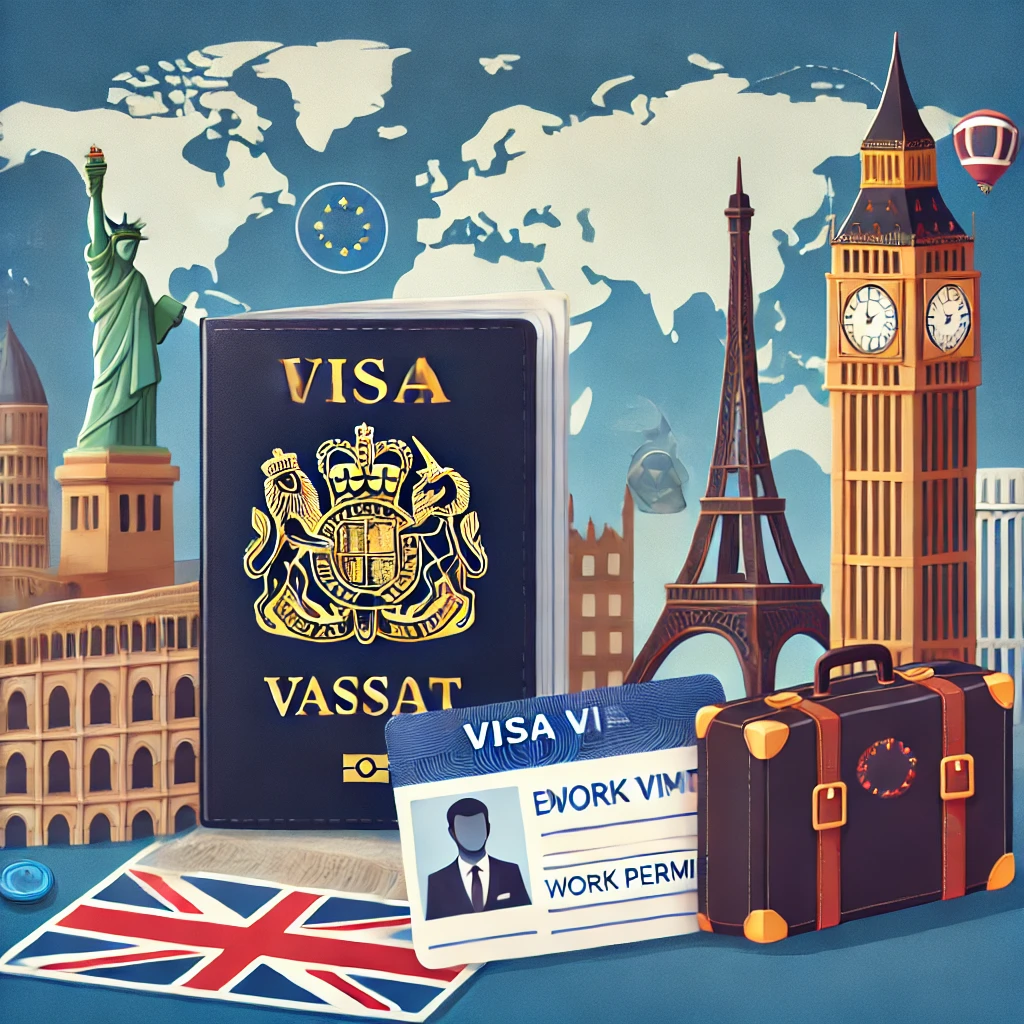Are you dreaming of working in Europe? Many people want to travel, explore new cultures, and find exciting jobs. But before you pack your bags, you must understand Europe work visa options. This blog will help you learn about the different types of work visas in Europe and which one might be right for you.
What is a Work Visa?
A work visa is a special permission that allows you to live and work in another country. Each country in Europe has its own rules and types of work visas. Some Europe Work Visa is for skilled workers, while others are for students or people looking for seasonal jobs.
Types of Work Visas in Europe
1. EU Blue Card
The EU Blue Card is a widely recognized permit designed for highly skilled professionals seeking work opportunities in European Union member states. If you have a university degree and a job offer in Europe, this visa might be for you. The EU Blue Card allows you to work and live in any EU country (except Denmark and Ireland).
Who Can Apply?
- Skilled workers with a higher education degree.
- Workers who have a job offer with a salary above a certain amount.
2. Skilled Worker Visa
Many countries, like Germany and the UK, have skilled worker visas. These visas allow people with specific skills or qualifications to work in those countries.
Who Can Apply?
- People with job offers in fields that need workers.
- Those with relevant qualifications or experience.
3. Seasonal Worker Visa
If you want to work for a short time, a seasonal worker visa might be your best choice. This visa is perfect for jobs in agriculture, tourism, and hospitality.
Who Can Apply?
- Workers looking for short-term jobs.
- People who want to experience life in another country for a few months.
4. Youth Mobility Visa
The Youth Mobility Visa is a great option for young people. This visa allows young adults from certain countries to live and work in Europe for a year or two.
Who Can Apply?
- Young adults aged 18 to 30.
- Citizens from countries that have agreements with Europe, like Australia and Canada.
5. Internship Visa
If you are a student or recent graduate, an internship visa can help you gain work experience in Europe. This visa allows you to work for a short period while learning about the job market.
Who Can Apply?
- Students or recent graduates.
- Those with an internship offer from a European company.
How to Choose the Right Visa
Choosing the right work visa depends on several factors. Here are some things to consider:
1. Your Skills and Qualifications
Think about your education and work experience. If you have a specialized skill or degree, you might want to apply for the EU Blue Card or a skilled worker visa. If you’re younger and looking for temporary work, consider the youth mobility or seasonal worker visa.
2. Your Job Offer
If you already have a job offer, check what type of visa your employer supports. Many companies help their employees with visa applications, making it easier for you.
3. Your Country of Origin
Some visas have restrictions based on your nationality. Check if your country has agreements with the European country you want to work in. This can affect your visa options.
4. Duration of Stay
Think about how long you want to stay in Europe. If you’re looking for a short adventure, a seasonal worker visa might be ideal. If you want to build a career, consider the EU Blue Card or skilled worker visa.
The Application Process
Once you decide which visa to apply for, you need to follow the application process. Here are the general steps:
1. Gather Documents
You must gather multiple documents for your visa application. Common documents include:
- A valid passport.
- Job offer letter.
- Proof of qualifications (like degrees or certificates).
- Health insurance proof.
Financial statements to show you can support yourself.
2. Fill Out the Application Form
Each visa has its own application form. Make sure to fill it out carefully and provide accurate information.
3. Submit Your Application
Submit your application to the relevant embassy or consulate. Some countries allow online applications. Make sure to pay any required fees.
4. Wait for a Decision
After applying, you will need to wait for a decision. The time required for processing depends on the country and the type of visa. Be patient and use this time to prepare for your adventure!
5. Prepare for Your Move
Once you receive your visa, it’s time to prepare for your move. Research your new city, find accommodation, and learn about the local culture.
Tips for a Successful Visa Application
- Be Honest: Ensure that all information in your application is accurate and truthful.
- Double-Check Documents: Verify that all your documents are complete and correct.
- Follow Deadlines: Pay attention to visa application deadlines to ensure your application is timely.
- Seek Help: If you have questions, consider consulting an immigration lawyer or a visa expert.
Conclusion
Choosing the right work visa for Europe depends on your skills, job offers, and the duration of your stay. Consulting an Immigration Agent can help you navigate the process efficiently. Understanding the various visa types allows you to make a well-informed decision. Ensure your documents are complete and accurate while following the application process carefully.
If you have any questions about work visas in Europe, feel free to ask! The journey to your new job and life in Europe starts with understanding your options. Good luck!
Also Read: Understanding New Zealand Immigration Policies in 2025



